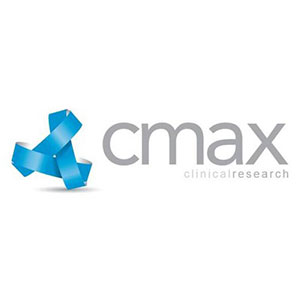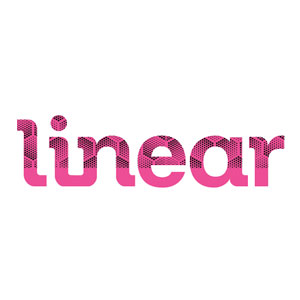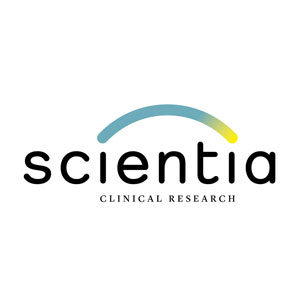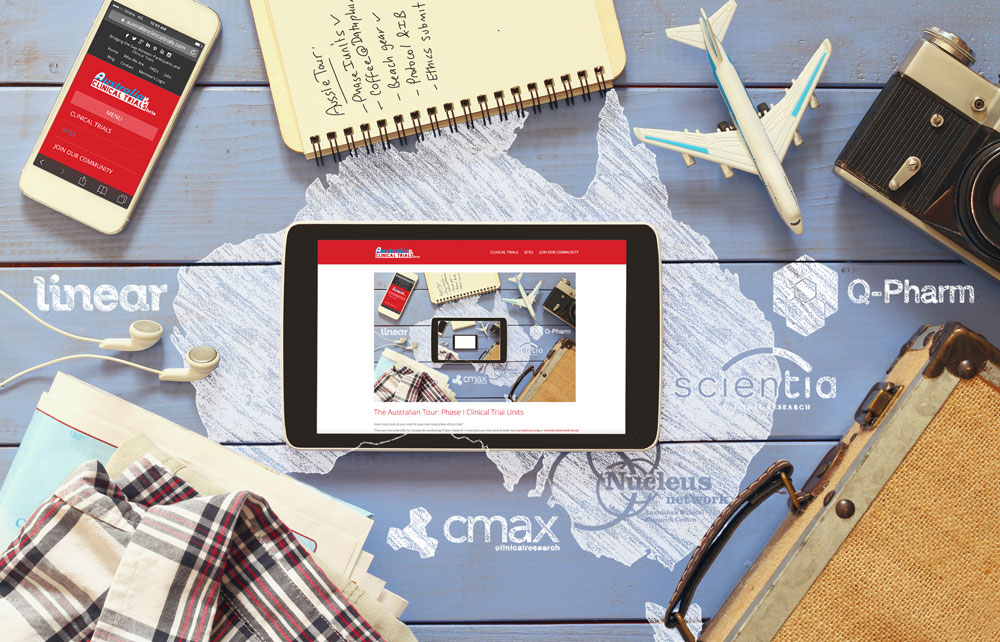There are many benefits for companies conducting Phase I research in Australia: you may have already read our previous blog or recently-developed ebook, which deals more generally with the advantages of running clinical trials in Australia. However, there has been a recent emphasis on Phase I research in Australia – almost 30% of studies conducted here are Phase I studies! Here, you can familiarise yourself with the benefits of running Phase I research in Australia, and who to get in contact with if you would like to know more.
This blog is divided into two halves. The first section will discuss the regulatory framework in Australia that has been designed specifically to facilitate Phase I clinical trials. In the second section, you can read more about Australia’s biggest Phase I Investigator Sites, some of which have generously made time to write about themselves, their capabilities, and services. By understanding the Australian research environment better, you can make a more informed choice about your next Phase I clinical trial.
Phase I research facilitated by Australian experience
Generally speaking, a Phase I (or first-in-humans) clinical trial, is a critical period in the development of all therapies with a view to be deployed, commercially or otherwise. Despite being backed by theory and other tests, the first time that a newly-developed therapy is used in (usually healthy) volunteers necessitates strict monitoring and readily available specialist care. This is done to ensure any harmful effects are detected early and kept to a minimum, keeping the participants of the study safe. Furthermore, the right equipment must be available so that the appropriate safety data can be collected, as the primary purpose of a Phase I study is to assess the safety, dosage levels, and any side effects of the therapy being tested.
The medicines industry of Australia invests more than $1 billion every year into research and development with investment in Phase I studies in Australia alone having a conservative estimate of $50 million. Furthermore, the R&D Tax Incentive offered by the government also provides eligible companies with up to 43.5% of the money spent on certain research activities, which Phase I studies will almost always fulfil. The Clinical Trials Capability Report produced by Austrade estimates almost 30% of the clinical trials run in Australia are Phase I, supported by the Phase I units listed below and more. Phase I recruitment rates are very comparable to studies run in other countries helped in part by Australia’s densely populated capital cities, world-class facilities, and friendly population.
Australia’s efficient and practical regulatory framework ensures that critical Phase I trials have rapid start up times. Here, ethics review is performed frequently by a private ethics committee. Notifying Australia’s regulatory body, the Therapeutic Goods Administration (TGA), can be done through the Clinical Trial Notification (CTN) scheme. Notification from the TGA can be received in as little as a week, meaning your study will ideally commence in a timely manner. There is also no need to submit an Investigational New Drug (IND) application in Australia.
Often, the drug for a Phase I study is produced in small quantities, at local labs, on-site or other research facilities. It is important to note that a Good Manufacturing Practice (GMP) license in Australia is not required to produce experimental drugs for Phase I studies. Despite this, most facilities that produce Phase I drugs will still adhere to cGMP even if they are not certified. The Australian government indicates that, under Good Clinical Practice (GCP) specifications “Schedule 7 Therapeutic goods exempt from the operation of Part 3-3 of the Act unless supplied as pharmaceutical benefits” – this generally refers to drugs prepared for Phase I studies.
With these points in mind, it is no wonder that companies are coming from all over the world to run their early phase clinical trials in Australia. For example, CSL has recently stated they will be bringing three new Phase I trials to Australia. They decided to do so as their trials will be “…supported by a local network of world-class clinical researchers who have the skills to collaborate on early-stage trials. In addition, Australia has a regulatory environment that is supportive of early stage clinical development programs, and accessible Phase I clinical trial infrastructure.”
Where would you like to run your Phase I trial in Australia?
Phase I research is the cornerstone of the drug development process: it informs and shapes all future clinical research in humans, and as such must be done to the highest possible standards. When choosing which investigator sites will run your Phase I study, there are several key factors that must be considered. Quality of care, medical equipment, experience, and volunteer capacity are all important aspects. These requirements vary from trial to trial, so familiarising yourself with the major Phase I units of Australia will help you find the ideal site for your trial.
About 200 beds are ready for Phase I clinical trials in dedicated units across Australia. Here is a short list of the major Phase I units that could be running your next clinical trial:
Doherty Clinical Trials (Melbourne – Victoria)
Established by the world-renowned Peter Doherty Institute for Infection and Immunity, Doherty Clinical Trials is a not-for-profit organisation specialising in early phase, first-in-human and human challenge clinical trials. Doherty Clinical Trials is distinctively positioned with access to deep clinical expertise across Melbourne’s renowned Biomedical Precinct including the Peter Doherty Institute, Royal Melbourne Hospital, Murdoch Children’s Research Institute, Peter MacCallum Cancer Centre and Walter and Eliza Hall Institute, to name a few.
Representing Australia’s first clinical trial facility specifically commissioned to deliver human challenge trials, Doherty Clinical Trials provides a clinical trial model that is highly valued by academic partners, and biotechnology and pharmaceutical industry partners as one of the most efficient ways to evaluate the efficacy of novel vaccines and therapeutics.
With a purpose-built 25-bed facility, comprising specialised containment and isolation facilities, a dedicated PC2 laboratory, in-house pharmacy, and multiple outpatient rooms, Doherty Clinical Trials offers meticulous care and a tailored participant experience, resulting in consistent positive feedback scores from trial stakeholders. Providing a recruitment scope of >5M in Melbourne, Doherty Clinical Trials excels at recruiting trial participants, as well as retaining participants via a healthy and engaged centralised database.
Supported by a skills-based board of globally respected academic and scientific leaders and coupled with a workforce of >50 highly experienced clinical trial professionals, including expertise in pharmaceutics and pharmacology, medical research, translational medicine, biotechnology, quality and pharmacovigilance, Doherty Clinical Trials is expertly placed to provide service excellence and support to local and global clients to accelerate the development of novel medicines and vaccines in a safe and ethical manner, whilst maintaining the utmost quality in data collection.
“At Doherty Clinical Trials, we are committed to delivering unparalleled support for our pharma,
biotech and academic partners, specialising in early-phase and human challenge trials for infectious
diseases. Our facility combines innovation and precision, and our expert teams support accelerating
development timelines to help our clients bring life-saving treatments to market faster.”
– Andrew Brockway, CEO, Doherty Clinical Trials Ltd
 Nucleus Network (Brisbane – Queensland, Melbourne – Victoria)
Nucleus Network (Brisbane – Queensland, Melbourne – Victoria)
With over 17 years’ experience as Australia’s premier Phase 1 clinical trials organisation specialising in first-in-human clinical trials, Nucleus Network is also the world’s only multi-site, multi-country Phase 1 clinical trial specialists, operating in Australia and the USA.
Operating Australia’s two largest facilities, with a combined 150+ beds, our state-of-the-art Melbourne and Brisbane clinics are both co-located in cutting-edge medical research precincts, within two of Australia’s leading hospitals.
Our Melbourne facility has extensive pharmacodynamic biomarker capabilities, including on-site access to imaging facilities, respiratory facilities, gastroenterology facilities and anaesthetic services. Pharmacodynamic capabilities also extend to immunology services (including flow cytometry and immune activation) and bioanalytical services through onsite external vendors.
Specializing in vaccine and biosimilar studies, our Brisbane facility has purpose-built infrastructure to support the high-volume participant and outpatient requirements of these clinical trial designs. This facility is also supported by external bioanalytical and pharmacodynamic laboratories.
With access to two of Australia’s largest metropolitan populations, our dedicated and well-resourced recruitment team are known for their ability to successfully recruit both healthy volunteers and patients to a broad range of clinical trial designs.
Conducting an average of 70 trials annually, approximately 50% of which are FIH, Nucleus Network was chosen to deliver more than 6 Covid-19 Phase 1 trials, making us the provider of choice in Australia.
Together with our clients, we are fulfilling our purpose of “Advancing medicine, improving lives.”
“We saved 6 months, recruitment exceeded expectation, we had more cases than expected, and it cost 40% less than conducting the same study in Europe.”
– Vaccitech
 CMAX (Adelaide, South Australia)
CMAX (Adelaide, South Australia)
Established in 1993, CMAX is one of Australia’s largest and most experienced Phase I-II clinical trial units. Centrally positioned in Adelaide, CMAX is located next to the innovative Bio-Med City precinct. Specialising in a full range of early-phase trials including first-time-in-human studies, the brand-new CMAX facility houses 50 beds and a 24-bed ambulatory cardiac telemetry monitoring system. With an active database of more than 15,000 participants, CMAX teams conduct 25-30 studies per year and perform world-leading research for their local and international clients.
Clinical trials undertaken at CMAX have resulted in the advancement of global medicines and technologies, from cancer treatment and pain control, to early warning bio-devices and hormone replacement therapies. Australia’s regulatory system, which allows international pharmaceutical companies to obtain their critical early phase data earlier, in addition to Australia’s reputation for safety and quality in clinical trials, continue to make it an attractive destination for placement of clinical trials. Furthermore, there is increasing interest and uptake of the Australian R&D Tax Incentive scheme.
 Linear (Perth, Western Australia)
Linear (Perth, Western Australia)
Located in the heart of one of the largest medical precincts in the Southern Hemisphere and a subsidiary of the Harry Perkins Institute of Medical Research, Linear is a 30 bed, state-of-the-art clinical trial facility dedicated to nurturing medical breakthroughs. Accessing Perth’s highly diverse population of 2.2 million and an extensive investigator network, Linear excels at recruiting both patient and healthy volunteer studies. This has resulted in over 350 trials in just 11 years, including 98 oncology and 36 haematology trials, resulting in the creation of a dedicated cancer trials team that includes a team of internationally renowned medical oncologists and haematologists. This is complemented by an early phase unit handling healthy volunteer and non-cancer patient studies allowing Linear to handle the most complex of studies including immunotherapy and large vaccine trials.
“Whilst Australia is well known for its pragmatic regulatory environment and cost effective trials, it’s the focus on quality that Linear’s clients highlight as being the key reason for continuing to come back”
– Jayden Rogers, CEO, Linear Clinical Research Ltd.
 Scientia (Sydney, New South Wales)
Scientia (Sydney, New South Wales)
Scientia Clinical Research is a government-funded early phase research facility, with construction supported by Commonwealth funding through Therapeutic Innovation Australia and by the NSW Government. Scientia is an up-and-coming centre that aims to support both first in human and first in patient studies across many different areas such as cancer, ophthalmology, neurology, addiction, rheumatology and paediatrics. Scientia plans to have 30 inpatient beds with cardiac telemetry, 18 consulting rooms, and 2 procedure rooms. Furthermore, it will contain a pharmacokinetic laboratory for drug synthesis, a sample processing, analysis and management bioanalytical laboratory, and cGMP compounding. Scientia also aims to train clinical researchers, and improve clinical standards for clinical trial volunteers.
The Takeaway
Australia, supported by both the government and excellent Phase I facilities around the country, is well placed to support all types of early phase clinical trials. How many of these beds would you like to take advantage of? If you need sample size calculations, clinical trial feasibility, or other clinical trial start-up support, get in contact with us today, and see how we can help you.
